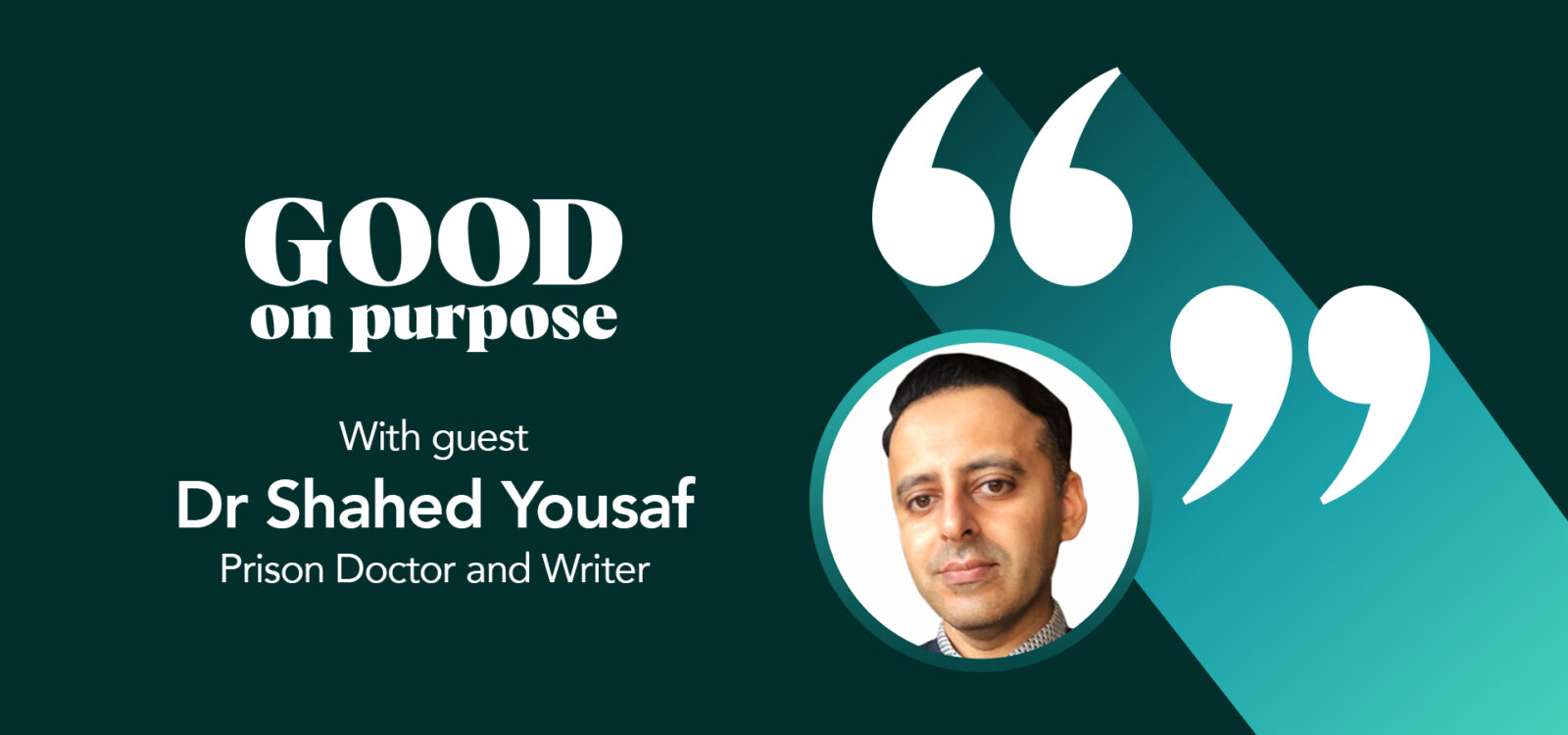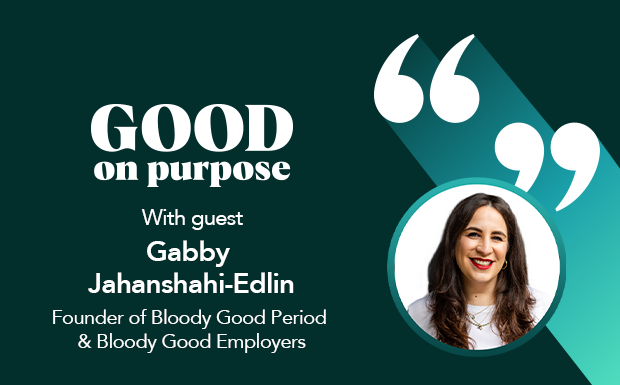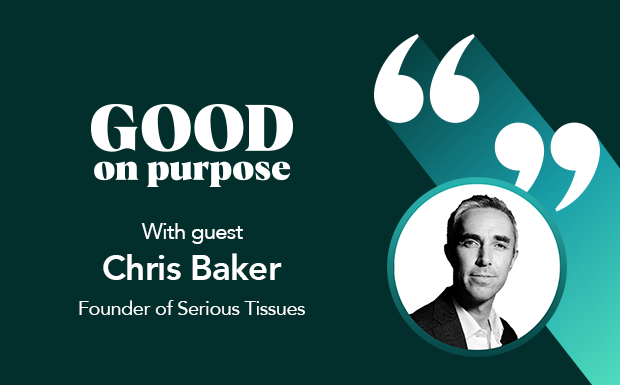
Dr Shahed Yousaf on: How to fix a broken prison system
This episode covers the sensitive topic of violence and murder in the context of prisoners behind bars.
This episode features Dr Shahed Yousef, a Prison doctor, published author. Having always wanted to be a writer, and qualifying as a doctor and GP, a chance encounter at a flash fiction masterclass brought both of his worlds together in his book ‘Stitched Up: Stories of Life and Death from a Prison Doctor’.
Dr Shahed shares some of his experiences working in prisons and discusses the challenges of the prison system we have in the UK.
Why a prison Doctor?
The inverse care law is where those with the greatest need for help are the least likely to receive it.
After qualifying, I wasn’t quite sure what career I wanted to do [within medicine], but I knew I wanted to help people on the margins [of society]. That’s always been something that’s appealed to me. So, when I qualified, the first job I took was to be a GP for homeless people. That’s where I saw my career, working with the homeless community. When I was working with them, I realised that as winter approached, many homeless patients would commit petty crimes to be sent to prison so that they could have food, shelter, and warmth.
One of the doctors that I was working with at the homeless practice, mentioned that she did shifts in a prison. I had no idea there was a speciality for prison GPs; it wasn’t something that I had been taught at medical school. I took the plunge and started doing some locum jobs in various prisons, and [now], I’ve worked in prisons for ten years. I’ve worked in over a dozen different prisons, male, female, young offenders’ institutes, and all categories.
Is our system fit for purpose?
The introduction to my book is called a broken system. That doesn’t just reflect the prison service because the prison service doesn’t work in isolation. Challenges include things like cutting community mental health beds. Cutting prison officer numbers, [where] we see an increase in violence, and that’s not just violence from prisoner to prisoner but also prisoner to staff. Since 2013, violent crime rates have increased massively, so we all live with the consequences. It’s not something that happens behind closed doors in prisons; it impacts all of us.
Rehabilitation is provided primarily by prison officers, but we don’t have enough prison officers to provide that. When someone has served their sentence, we must ask, are they rehabilitated? Are they safe to be your neighbour, my neighbour? Or have they been brutalised by a system and made angrier? Unfortunately, I can’t say with confidence that the prison system that we have, at the moment, is producing people who are going to go out and commit fewer crimes. It’s not working and we can see that with the reoffending numbers.
The prison budget is approximately £5 billion, but reoffending costs about £15 to 20 billion. If we were to spend more money on rehabilitating prisoners rather than dealing with the consequences of non-rehabilitated prisoners being released, we’d have a safer society. Countries like Norway and Sweden have done that, they spend a lot more money on rehabilitation, and they’ve closed prisons. We’re opening more prisons and seeing this as a success. It’s a failure. It’s a societal failure to open more prisons. Out of western Europe, the UK sends more people to prison for longer sentences, even though there’s no evidence that longer sentences serve to bring down reoffending rates.
What has been your most enriching experience working in prison?
I’m passionate about literature; I was a writer before I became a doctor. I believe in the therapeutic power of literature and how it can make us feel better, teach us things, and enrich our lives. Approximately 50% of people in prisons are functionally illiterate. Seeing the change in someone who has learned to read has been enriching for me. We have the Shannon trust literacy agency, which is a fantastic charity that goes in and teaches people to read. That, in turn, improves your prospects when leaving prison. If you can’t read, many jobs are closed to you. However, if you can read, you can pay your bills, you can get a house, you can get a job, and it changes your life, and also enriches your imagination, it teaches you empathy. That’s what books are, that’s what writing is. That’s why I wrote this book, and I wanted people to be able to walk with me as I go through my day, through the challenges and the triumphs, and then to see what it’s like inside prisons. That’s the power of literature.


